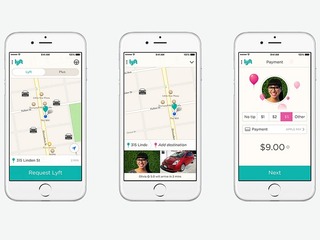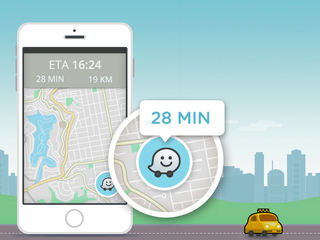Pelvital raises $2.32M to commercialize its urinary incontinence device
Flyte delivers mechanotherapy transvaginally to the pelvic floor
Read more...Editor's Note: Our annual Vator Splash Spring 2016 conference is around the corner on May 12, 2016 at the historic Scottish Rite Center in Oakland. Speakers include Nigel Eccles (CEO & Co-founder, FanDuel), Andy Dunn (Founder & CEO, Bonobos), Mitch Kapor (Founder, Kapor Center for Social Impact); Founders of NextDoor, Handy, TubeMogul; Investors from Khosla Ventures, Javelin Venture Partners, Kapor Capital, Greylock, DFJ, IDG, IVP and more. Join us! REGISTER HERE.
The international forces continue to rise up against Uber. Cabify, a ridesharing company operating in 17 cities across Spain, Chile, Peru, Mexico, and Colombia, has raised a $120 million Series C round of funding led by a $90 million investment from Rakuten, according to the Wall Street Journal. The new round values Cabify at $320 million and pushes its total funding over $140 million.
Cabify, a ridesharing company operating in 17 cities across Spain, Chile, Peru, Mexico, and Colombia, has raised a $120 million Series C round of funding led by a $90 million investment from Rakuten, according to the Wall Street Journal. The new round values Cabify at $320 million and pushes its total funding over $140 million.
We've confirmed the new funding directly with Cabify.
It’s no coincidence that Rakuten, the Japanese e-commerce company leading Cabify’s new round, also led a $530 million round in Lyft a year ago. Additionally, Lyft’s latest $1 billion round led by General Motors also saw renewed contributions from Rakuten. Basically, the investor has a lot of money riding on the underdogs trying to out-compete the ridesharing giant Uber.
Also worth noting in Lyft’s $1 billion round is the participation of Didi Kuaidi, Uber’s arch-nemesis in China. The money backing reinforces a partnership forged between Lyft and Didi Kuaidi (along with Ola in India and GrabTaxi in Southeast Asia) this past December. Of course, we're all left wondering whether Cabify will be the next partner to join the anti-Uber coalition.

If you know Uber, then you know Cabify.
The newly funded company offers an app for Android, iPhone, and the Web allowing users to order a ride on-demand or in advance. The app displays a price estimate before the order is placed. Users can then track the driver in real-time (and contact them if necessary), and then receive notice when the ride is ready. Payment is handled through PayPal or credit card and (akin to Uber, not Lyft) the company says tips are included.
When it comes to aesthetic, Cabify’s professionalism seems to tie to Uber’s more formal roots, as the company says it asks its drivers to wear suits. Additionally, the choice of vehicles (executive and luxury sedans vs. luxury vans) also seems to reflect this.
Cabify also operates a business-focused service, and says its clients include Google, Visa, AXA, and Allianz. Again, this is reminiscent of Uber, which also offers a business-focused service designed to help corporate teams manage multiple accounts for their teams.
Though a sizable funding round and corresponding valuation, Cabify still has a long way to go before matching the likes of its international competitors. After raising several billion-dollar rounds over the past couple years, Uber sits at the top with a reported $62.5 billion valuation. Next come Didi Kuaidi, Lyft, and Olacabs, valued at $15 billion, $5.5 billion and $5 billion, respectively. Then there’s BlaBlaCar and GrabTaxi, valued at $1.6 billion and $1.5 billion, respectively.
Still, I can’t help but wonder whether a year from now we could be looking at Cabify as the next ridesharing unicorn.
Flyte delivers mechanotherapy transvaginally to the pelvic floor
Read more...The country will need an additional 203,200 RNs each year until 2031 to fill staffing shortages
Read more...This will allow DrFirst to accelerate its growth in the specialty medication space
Read more...



